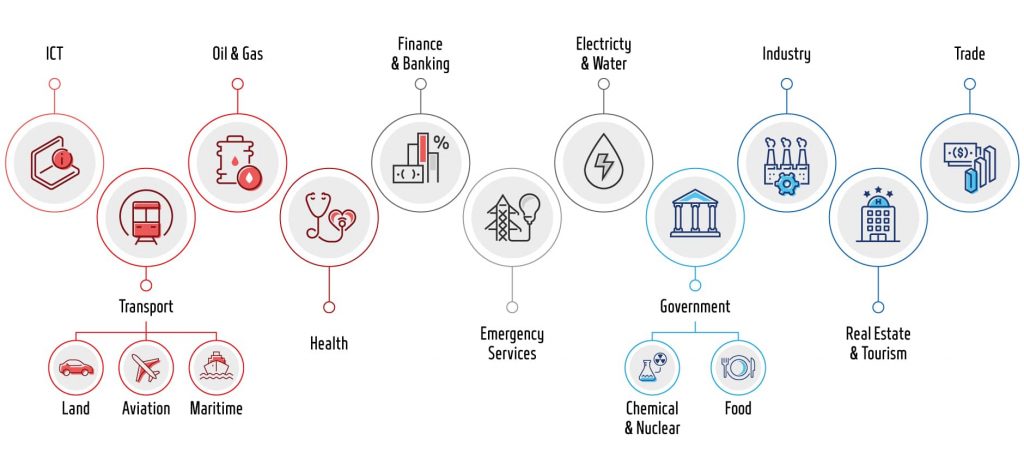DESC provides a framework for managing cyber risks and supporting government entities.
- Home
- /
- Regulations
- /
- Critical Information Infrastructure (CII)
Critical Information Infrastructure (CII)
Guideline for the Identification of Critical Services
The Cyber Security Strategy for Dubai was developed by Dubai Electronic Security Center (DESC) and was launched in May 2017 by His Highness Sheikh Mohammed bin Rashid Al Maktoum. Part of the successful implementation of this cyber security strategy is the protection of organizations and business processes/services, whose compromise can negatively impact Dubai, the Critical Information Infrastructure (CII).
DESC has started the initiative to protect CII organizations and their critical services by identifying organizations that are part of the CII in their particular business sector; your organization was identified in this process. DESC now needs your support in identifying those business processes/services in your organization that are critical for the cyber security of Dubai.
Critical Sectors are those sectors supporting the sustainability and continuity of the most important functions and services in Dubai. The incapacity or destruction of those services would have a drastic impact on the UAE’s society, economy and safety.
Examples of Critical Sectors:

Critical Sector Overview
Emergency Services
Health
Electricity & Water
Government
Transportation
Oil & Gas
Information & Communication Technology
Finance & Banking
Trade
Tourism & Real Estate
The tourism and real estate sector include a diverse range of sites that draw large crowds of people for shopping, business, entertainment, or lodging. Facilities within the sector operate on the principle of open public access, meaning that the general public can move freely without the deterrent of highly visible security barriers.